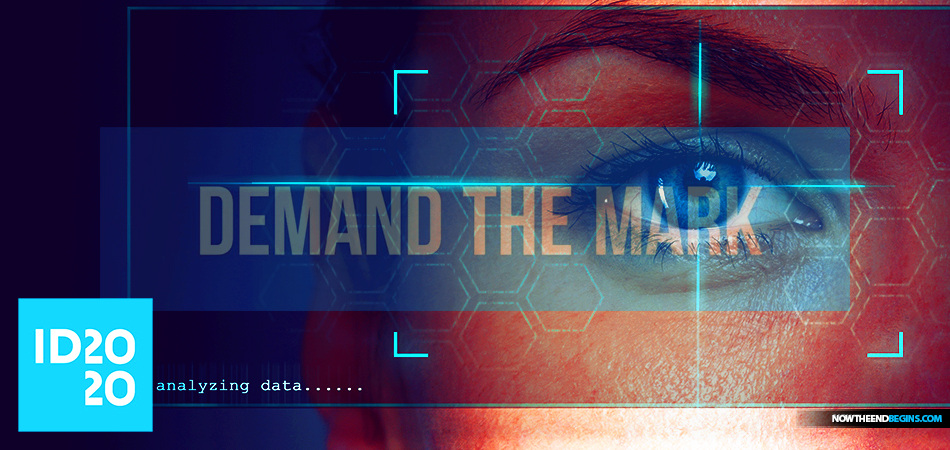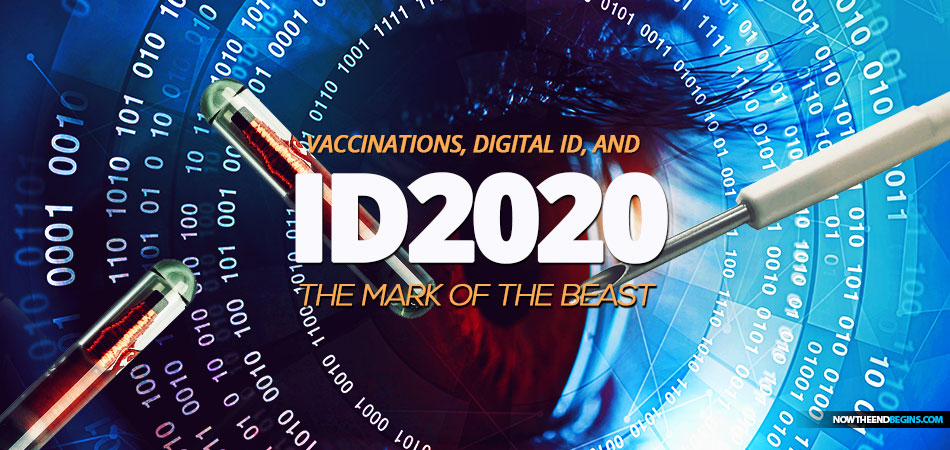
The Good Health Pass Collaborative is a global collaboration of health, travel, technology, government, and civil society organizations to develop a blueprint for privacy-protecting, user-controlled, globally interoperable, and universally accepted digital health pass systems.
Hey, look over there! Why it's the Microsoft-funded, Bill Gates created, ID2020 Alliance who's here to save the day and give everyone on the earth their very own digital identification so you can prove you're received the Mark of the Beast COVID-19 vaccine. It's OK , everyone, we're going to make it!! Oh, wait...
“Now this is not the end. It is not even the beginning of the end. But it is, perhaps, the end of the beginning.” -Winston Churchill
It's at times like this where I literally feel profoundly sorry for unsaved people who are unable to understand bible prophecy, because if they could see things the way we see them, they would be reacting quite different then they are currently. Your King James Bible hits it out of the park with every swing regarding what is happening right now, and is warning you and informing you of these end times in which we find ourselves.
I cannot imagine going through these last days without it.
"Who shall not fear thee, O Lord, and glorify thy name? for thou only art holy: for all nations shall come and worship before thee; for thy judgments are made manifest." Revelation 15:4 (KJB)
The Good Health Pass Digital Trust Ecosystem From ID2020
FROM ID2020 ALLIANCE: The largest immunization campaign in history is underway. But the rollout to date has been slow and unequal. With many countries still unable to procure vaccines, it will take years to vaccinate the world’s 7.9 billion people. This underscores the importance of continued, widespread testing as an essential public health tool that must continue alongside vaccination to ensure an equitable return to public life.
Recent COVID test results are already required at some airports and international borders. And, faced with competing demands to restore mobility and economic activity and protect public health, governments, employers, educational institutions, airlines, sports and event venues, and others are considering proof of a recent negative test or vaccination as a condition of access.
 CLICK TO SEE WHAT'S NEW IN THE COMPANY THAT BILL GATES CREATED, WELCOME TO ID2020
CLICK TO SEE WHAT'S NEW IN THE COMPANY THAT BILL GATES CREATED, WELCOME TO ID2020
Existing paper-based credentials (e.g., the “yellow card,” the U.S. Centers for Disease Control and Prevention COVID-19 vaccination certificates, and COVID test results from labs) are easy to lose, unnecessarily expose sensitive personal information, and are prone to fraud and counterfeiting – particularly when the stakes are so high. By contrast, digital health credentials can be printed or stored on an individual’s mobile phone, enhance user privacy, and “bind” an individual’s identity to a test result or vaccination certificate to enable real-time fraud-resistant digital verification.
Digital health pass systems – that combine identity credentials and health credentials (test results and vaccination certificates) – will make it faster and easier for airlines and border control officers to verify an individual’s COVID-19 status while reducing the potential for fraudulent results and preventing misuse of personal health data.
Because numerous companies around the world are racing to market with digital health credential solutions, it is unlikely that one solution will be implemented globally. Thus, it is vitally important that solutions are designed for interoperability – both with one another and across institutional and geographic borders. This can only be achieved through a set of open standards to which all digital health pass systems must adhere. Failing to address interoperability could undermine acceptance, adoption, and ultimately, the utility of digital health passes.
Efforts to develop these systems have been largely driven by and for the travel and tourism industry. However, the immense complexity of facilitating cross-border travel means that digital health pass systems developed for this purpose must engage an entirely new ecosystem of stakeholders, including governments, and the travel, health, and technology sectors.
We recognize that several efforts – each addressing components of this challenge – are already underway.
The Good Health Pass Collaborative is not intended to supplant these efforts but rather to help weave them together and facilitate collaboration. By identifying the various areas where convergence around open standards is required – and filling gaps where they exist – the Good Health Pass Collaborative will provide the structure and coherence necessary for these ongoing efforts to fulfill their promise.
This paper – outlining a set of principles and a call to action – is a critical first step toward standards for what we call “good health passes.” When we talk about digital health passes that are “good,” we mean that they align with these principles and that they are privacy-protecting, user-controlled, interoperable, and widely accepted for international travel, and more.
We also recognize that technology is only part of the solution. It is necessary but insufficient without the policies that support its ethical implementation. We hope that the principles outlined in
this paper – which emphasize personal privacy and security, user control, and interoperability – will also provide useful guidance for policymakers as they consider legislation and regulations related to digital health credentials.
As our next step, we will collaboratively develop and release a blueprint for how we expect to get there. We invite policymakers, companies in the health, technology, and travel sectors, and civil society organizations to join in this effort to restore mobility and restart the global economy – and ensure that equity, privacy, and other civil liberties are protected in the process. READ MORE
No comments:
Post a Comment